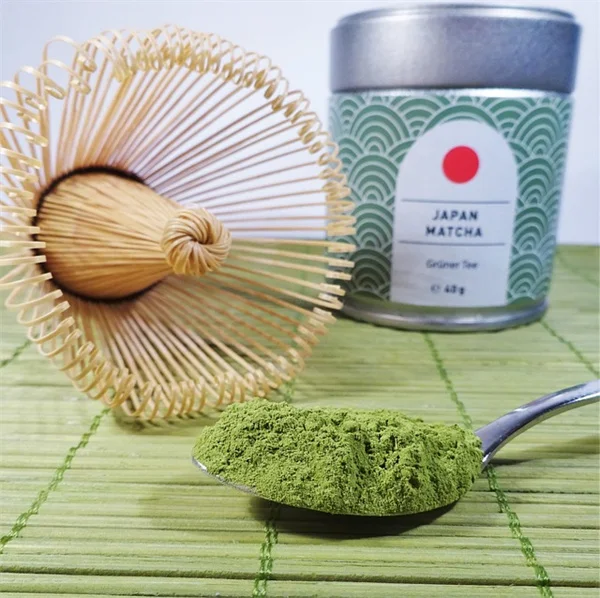Does 90% of Americans really have CKM syndrome? The answer is yes - a shocking new study reveals that 9 out of 10 U.S. adults show signs of cardiovascular-kidney-metabolic syndrome. I know that sounds like some medical jargon, but let me explain why this matters to you. CKM syndrome is basically when your heart, kidneys and metabolism start ganging up on you - and most of us don't even realize we're at risk until it's too late. The good news? This isn't a life sentence - simple lifestyle changes can help stop the progression before serious damage occurs. Let's break down what this means for your health and what you can do about it starting today.
E.g. :Diabetes and Mental Health: The Shocking Connection You Need to Know
- 1、Wake Up Call: 90% of Americans Have This Silent Health Threat
- 2、The Domino Effect: How One Problem Leads to Another
- 3、Turning the Tide: What Actually Works
- 4、The Big Picture: Why This Matters
- 5、The Hidden Factors Behind CKM Syndrome
- 6、Environmental Triggers We Often Ignore
- 7、Beyond Diet and Exercise
- 8、Practical Solutions for Real Life
- 9、FAQs
Wake Up Call: 90% of Americans Have This Silent Health Threat
What Exactly Is CKM Syndrome?
Let me break it down for you - CKM syndrome is like that annoying group project where heart disease, kidney problems, diabetes and obesity all decide to team up against your health. The American Heart Association only gave it this official name last year, but doctors have been seeing these connections for decades.
Here's the scary part: 9 out of 10 American adults are already in at least stage 1 of this condition. That's like if your whole high school class got detention - except this detention could lead to heart attacks or kidney failure. The stages work like this:
| Stage | What It Means | % of Americans |
|---|---|---|
| 0 | No risk factors (the lucky ones) | 10.6% |
| 1 | Extra weight + slightly high blood sugar | 26% |
| 2 | Full-blown diabetes + high blood pressure | 49% |
Who's Most At Risk?
Now here's something that might surprise you - your age, gender and race actually matter more than your diet when it comes to CKM risks. The study found:
Men are more likely than women to reach advanced stages. Black Americans face significantly higher risks than white Americans. And if you're over 65? You're practically guaranteed to be at stage 3 or 4. But before you panic about turning 65...
Did you know that 18% of young adults (20-44) are still at stage 0? That means there's hope if we act early! My cousin Jake thought he was invincible at 25 until his doctor found his blood pressure was through the roof. Now he's that guy bringing kale salads to BBQs.
The Domino Effect: How One Problem Leads to Another
 Photos provided by pixabay
Photos provided by pixabay
Your Body's Chain Reaction
Imagine your body like a row of dominoes. Obesity knocks over the first one, which bumps into high blood pressure, which then smacks into kidney damage, and before you know it - bam! Heart disease comes crashing down.
Here's how it typically plays out:1. Extra weight makes your heart work overtime2. Your pancreas struggles to keep blood sugar normal3. Kidneys get damaged filtering all that sugar4. Now your heart has to pump harder through clogged arteries
See the pattern? That's why doctors now treat these as one big connected system rather than separate issues. It's like realizing your car's engine, transmission and brakes all affect each other.
Why Are We All So Unhealthy?
Let's be real - modern life is basically designed to give us CKM syndrome. Think about it:- Our food comes drive-thru fast but digests slow as molasses- We sit more than medieval peasants but move less- Stress levels make the stock market look stable
The numbers don't lie:- 73% of us are overweight (including me after quarantine baking)- Half have high blood pressure (thanks, salty snacks)- 38 million have diabetes (soda companies love this stat)
Turning the Tide: What Actually Works
Small Changes, Big Impact
Here's some good news - you don't need to become a gym rat or eat like a rabbit to make progress. Just improving one risk factor can help break the chain reaction. Try these doctor-approved tips:
1. Walk 10 minutes after meals (helps blood sugar more than you'd think)2. Swap one soda per day for flavored seltzer (your pancreas will thank you)3. Get your blood pressure checked at the pharmacy (it's free at most CVS)
Remember my cousin Jake? He started by just taking the stairs at work. Now he's down 30 pounds and his latest bloodwork would make his doctor cry happy tears.
 Photos provided by pixabay
Photos provided by pixabay
Your Body's Chain Reaction
Here's a question many people get wrong: Do you need to be overweight to have CKM risks? Nope! Even "skinny fat" people can have dangerous metabolic issues. That's why everyone over 35 should get these simple tests:
- Waist measurement (yes, where you wear your pants matters)- Fasting blood sugar (don't eat before this one)- Kidney function test (they just need some pee)
The best part? Most insurance covers these completely. It's like getting a free report card for your insides.
The Big Picture: Why This Matters
More Than Just Numbers
Behind all these statistics are real people - maybe your dad who's always tired, your coworker who snacks on candy bars, or your aunt who's had "a touch of sugar" for years. This isn't about shame, it's about helping people get healthy before it's too late.
Consider this: heart disease kills more Americans than all cancers combined. But here's the hopeful part - 80% of heart disease is preventable. That means most of us could avoid becoming another statistic with some lifestyle tweaks.
What the Experts Want You to Know
I asked Dr. Chen what one thing he wishes patients understood about CKM syndrome. His answer? "It's never too early or too late to improve your numbers." Whether you're 25 noticing love handles or 65 with a pharmacy worth of meds - progress is possible.
His simple advice:- Move more (yard work counts!)- Eat more plants (no, french fries don't count)- Sleep better (Netflix can wait)- Manage stress (try box breathing)
The bottom line? Our bodies are amazing at healing when we give them half a chance. And with 90% of us at risk, there's never been a better time to start.
The Hidden Factors Behind CKM Syndrome
 Photos provided by pixabay
Photos provided by pixabay
Your Body's Chain Reaction
You wouldn't believe how many people overlook this simple factor - sleep quality directly impacts every aspect of CKM syndrome. When I pulled all-nighters in college, I thought the worst consequence was bad grades. Turns out, chronic sleep deprivation:
- Makes your body process sugar like a broken vending machine- Tricks your brain into craving junk food (ever noticed midnight snack attacks?)- Raises blood pressure as if you're running from lions all night
Here's a fun fact that shocked me: Just one week of sleeping 5 hours per night can temporarily put a healthy person into prediabetic ranges. That's why my doctor friend calls sleep "the cheapest metabolic tune-up available."
The Gut Connection
Did you know your gut bacteria could be influencing your CKM risk? Scientists are discovering that our microbiome acts like a tiny chemical factory, producing substances that affect everything from inflammation to sugar cravings.
Here's how it works:- Diverse gut bacteria = better metabolic health- Processed foods starve good bacteria- Fermented foods act like fertilizer for beneficial microbes
My neighbor Sarah switched from probiotic pills to eating kimchi and kefir, and her cholesterol improved more than when she just cut out fries. Who knew sauerkraut could be medicine?
Environmental Triggers We Often Ignore
The Plastic Problem
Here's something you probably haven't considered - chemicals in plastics might be sabotaging your metabolism. BPA and phthalates in food containers can:
- Mimic hormones and confuse your endocrine system- Promote fat storage (especially around the waist)- Interfere with insulin signaling
Simple swaps make a difference:- Glass containers instead of plastic for leftovers- Metal water bottles over disposable ones- Fresh produce instead of canned goods when possible
Remember how our grandparents stayed healthier without trying? Maybe their lack of plastic packaging was secretly helping!
24/7 Light Exposure
Here's a modern dilemma - we're drowning in artificial light, and it's messing with our circadian rhythms. Your body's internal clock controls:
- When you feel hungry- How you process nutrients- When fat burning occurs
Try these easy fixes:- Dim lights 2 hours before bed- Use blue light filters on devices- Get morning sunlight (even 10 minutes helps)
My friend Mark installed smart bulbs that automatically warm the light tone at sunset, and he swears it helped his late-night snacking habit disappear.
Beyond Diet and Exercise
The Power of Social Connection
Would you believe loneliness affects physical health? Studies show that strong social ties:
- Reduce inflammation (that silent killer behind many diseases)- Lower stress hormones- Encourage healthier habits through peer influence
That weekly poker game or book club might be doing more for your health than you realize. My bowling league keeps me moving and laughing - two things doctors love to see!
Mental Health Matters
Here's a question we should ask more often: How does chronic stress or depression contribute to CKM syndrome? The mind-body connection is real:
- Anxiety spikes blood sugar as if you're preparing for battle- Depression often leads to less movement and poorer food choices- Cortisol (the stress hormone) directly promotes belly fat storage
That's why therapy or meditation might be just as important as your gym membership. As my yoga instructor says, "You can't out-exercise a stressed-out mind."
Practical Solutions for Real Life
Tech That Actually Helps
Forget fad gadgets - these tools genuinely support metabolic health:
| Tool | How It Helps | Cost |
|---|---|---|
| Continuous glucose monitor | Shows real-time blood sugar responses | $100-$400/month |
| Sleep tracker | Identifies poor sleep patterns | $50-$300 |
| Step counter | Motivates movement throughout day | Free (phone apps) |
I resisted getting a smartwatch for years, but seeing my heart rate variability improve as I reduced stress was incredibly motivating!
Kitchen Hacks for Better Health
Here's my favorite piece of advice - make healthy choices the easy choices. Small tweaks in your environment create big results:
- Keep pre-cut veggies at eye level in the fridge- Store treats in opaque containers (out of sight, out of mind)- Use smaller plates (your brain thinks it's more food)- Meal prep sauces and dressings separately (prevents soggy lunches)
My aunt transformed her health just by moving her fruit bowl to the counter and hiding the cookie jar. Simple, but effective!
E.g. :Heart Disease Risk Factors | Heart Disease | CDC
FAQs
Q: What exactly is CKM syndrome?
A: CKM syndrome is the medical term for when heart disease, kidney problems and metabolic issues like diabetes team up against your health. Think of it like your body's version of a bad neighborhood where all the troublemakers work together. The American Heart Association only officially named this condition in 2023, but doctors have seen these connections for years. What's scary is how common it is - 49% of Americans are already at stage 2, meaning they have full-blown diabetes plus high blood pressure. But here's the hopeful part: catching it early means you can often reverse the damage with lifestyle changes before permanent harm occurs.
Q: How do I know if I'm at risk for CKM syndrome?
A: There are four key warning signs you should watch for: excess weight (especially around your waist), high blood pressure, elevated blood sugar, and kidney function issues. The study found men, Black Americans, and people over 65 face the highest risks - but honestly, if you're an American adult, you should probably get checked. Here's what I recommend: next time you're at the drugstore, use their free blood pressure machine. If it's consistently over 120/80, that's your first red flag. Then ask your doctor for simple tests like fasting blood sugar and kidney function - most insurance covers these completely.
Q: Can you reverse CKM syndrome once you have it?
A: The good news is yes, especially in the early stages. My cousin Jake (who I mentioned in the article) proved this - he was at stage 1 with high blood pressure at just 25. But by making small changes like walking after meals and cutting back on soda, he dropped 30 pounds and normalized his numbers within a year. The key is tackling one risk factor at a time - you don't need to overhaul your life overnight. Start with something simple like adding 10 minutes of walking daily or swapping one unhealthy snack for fruit. These small wins create momentum that makes bigger changes easier later.
Q: Why are Black Americans at higher risk for CKM syndrome?
A: This is a complex issue with both biological and social factors. Research shows Black Americans tend to develop high blood pressure earlier in life, and often have more severe cases. There are also healthcare disparities - studies show Black patients are less likely to receive certain preventive treatments. But here's what's important: your race doesn't have to be your destiny. Knowing you're at higher risk means you can be more proactive. Find a doctor who listens to your concerns, get regular checkups, and don't ignore warning signs like fatigue or frequent urination which could signal diabetes.
Q: What's the single most important thing I can do to prevent CKM syndrome?
A: If I had to pick just one thing, it would be move more. Not necessarily hardcore workouts - just breaking up long sitting periods with short walks makes a huge difference. Here's why: movement helps control blood sugar, lowers blood pressure, reduces stress hormones, and helps maintain a healthy weight - all key factors in CKM syndrome. Try this simple trick: set a phone reminder to stand up every hour during the day. Walk to get water, take the stairs instead of the elevator, or just pace while on phone calls. These micro-movements add up to big health benefits over time.

